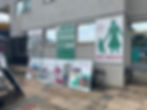

Where We Work

Nicaragua
Ethiopia
blueEnergy began its journey in Nicaragua, where its headquarters and campus are held. blueEnergy Nicaragua is fully locally led, and led by women, with only a small international staff of four outside of Nicaragua to help with fundraising and administration. Since 2014, blueEnergy also works with a local partner organization in Ethiopia.

Nicaragua Country Context
Located in Central America, Nicaragua is the second largest country in the region and has a population of 6.4 million. It is the second poorest nation in the Western Hemisphere, after Haiti.
The Autonomous Region of the South Caribbean Coast (also called “Atlantic region”) - blueEnergy's primary impact region - is the least urbanized of the country. It concentrates the poorest of the country and includes several indigenous and Afro-descendant groups whose living conditions are particularly precarious. More than 80% of the country’s poor live in remote, rural areas with little access to basic services like energy and potable water, which causes significant health problems and financial insecurity and disproportionately affects vulnerable groups. People are particularly affected by malnutrition due to lack of food diversity and poverty, and agricultural productivity is declining due to soil degradation caused by conventional agriculture and climate change.
Nicaragua Field Office
blueEnergy began its operations in the southern Caribbean coast of Nicaragua in 2004, with our campus located in the city of Bluefields, Nicaragua. Over 85 percent of blueEnergy's staff live in Bluefields, working as our operational structure to carry out impacts in the field. As of 2019, every member of the blueEnergy Nicaragua team is local Nicaraguan.
The blueEnergy Nicaragua office also acts a learning center for the Bluefields community: the Noda Model Center at blueEnergy Nicaragua is a demonstrative community space hosting trainings and hands-on installations where the community can learn about appropriate technologies, good practices for agriculture, permaculture, water and sanitation, renewable energy, and integration of indigenous knowledges to improve their health and resilience in the face of a changing climate.





Ethiopia Country Context
Ethiopia is one of the fastest growing economies in the world. However, GDP per capita is one of the lowest in the world. As of 2013, only 24% of the population has access to the national grid, making renewable energy a key component to any sustainable development effort, particularly in rural areas. Also in these rural areas, the majority of people do not have reliable access to safe and clean water. People fetch water from very distant places, which takes many hours and is a burden that falls disproportionally on women.
Local Partner in Ethiopia
Beginning in 2014, blueEnergy entered into a long-term partnership with Ethiopian NGO Mothers and Children Multisectoral Development Organization (MCMDO). MCMDO is an indigenous, nongovernmental, nonprofit and humanitarian organization founded in 1997.
blueEnergy and MCMDO partner to bring sustainable development solutions throughout the country of Ethiopia, enriching projects through incorporating renewable energy technologies such as solar water pumping, electrification of medical centers, and energy-based solutions for women-led cooperatives.
All these activities are also aimed at building the capacity of MCMDO teams: setting up and increasing the skills of a local technical team in order to be autonomous for the implementation and maintenance of "renewable energy" projects.





